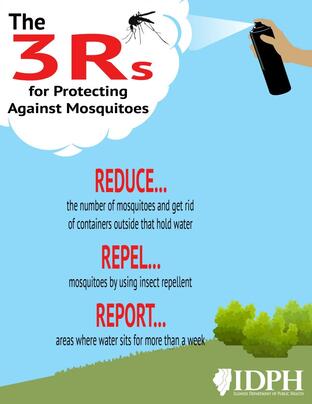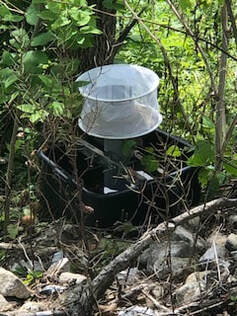Mosquitoes are common, flying insects that live in most parts of the world. Over 3,700 types of mosquitoes can be found worldwide.
Not all mosquitoes bite people or animals. When mosquitoes bite people, the most common reactions to the bite are itching and swelling.
Some mosquitoes can be vectors. A vector is an animal, insect, or tick that spreads pathogens (germs) to people and animals. The germs (viruses and parasites) that mosquitoes spread can make you sick.
www.cdc.gov/mosquitoes/index.html
Protect Yourself and Your Family from Mosquito Bites:
https://www.cdc.gov/mosquitoes/mosquito-bites/prevent-mosquito-bites.html
Not all mosquitoes bite people or animals. When mosquitoes bite people, the most common reactions to the bite are itching and swelling.
Some mosquitoes can be vectors. A vector is an animal, insect, or tick that spreads pathogens (germs) to people and animals. The germs (viruses and parasites) that mosquitoes spread can make you sick.
www.cdc.gov/mosquitoes/index.html
Protect Yourself and Your Family from Mosquito Bites:
https://www.cdc.gov/mosquitoes/mosquito-bites/prevent-mosquito-bites.html
| Mosquitoes Control State Local | |
| File Size: | 751 kb |
| File Type: | |
|
|
The Hancock County Health Department does West Nile Surveillance for Hancock County. The contraptions (shown here) collect mosquito batches and then they are tested for West Nile Virus. If the batch is positive it indicates West Nile activity in our county. Additional education will be provided to the public, stressing the importance of protecting yourself from mosquitoes. Furthermore, larvicide tabs are offered to township officials and mayors in the county and can be used in areas that typically hold water where mosquitoes can breed, etc. . |
|
In accordance with federal civil rights law and U.S. Department of Agriculture (USDA) civil rights regulations and policies, this
institution is prohibited from discriminating on the basis of race, color, national origin, sex (including gender identity
and sexual orientation), disability, age, or reprisal or retaliation for prior civil rights activity.
Program information may be made available in languages other than English.
Persons with disabilities who require alternative means of communication to obtain program information (e.g., Braille,
large print, audiotape, American Sign Language), should contact the responsible state or local agency
that administers the program or USDA’s TARGET Center at (202) 720-2600 (voice and TTY)
or contact USDA through the Federal Relay Service at (800) 877-8339.
To file a program discrimination complaint, a Complainant should complete a Form AD3027, USDA Program Discrimination Complaint
Form which can be obtained online at: https://www.usda.gov/sites/default/files/documents/USDA-OASCR%20P-ComplaintForm-0508-0002-508-11-28-17Fax2Mail.pdf, from any USDA office, by calling (866) 632-9992, or by writing a letter addressed to USDA.
The letter must contain the complainant’s name, address, telephone number, and a written description of the alleged
discriminatory action in sufficient detail to inform the Assistant Secretary for Civil Rights (ASCR) about the nature
and date of an alleged civil rights violation. The completed AD-3027 form or letter must be submitted to USDA by: 1. mail: U.S.
Department of Agriculture Office of the Assistant Secretary for Civil Rights 1400 Independence Avenue, SW Washington, D.C.
20250-9410; or 2. fax: (833) 256-1665 or (202) 690-7442; or 3. email: [email protected].
This institution is an equal opportunity provider.
Updated 5/5/2022

